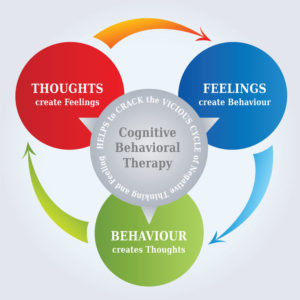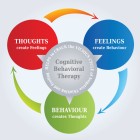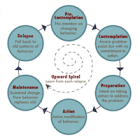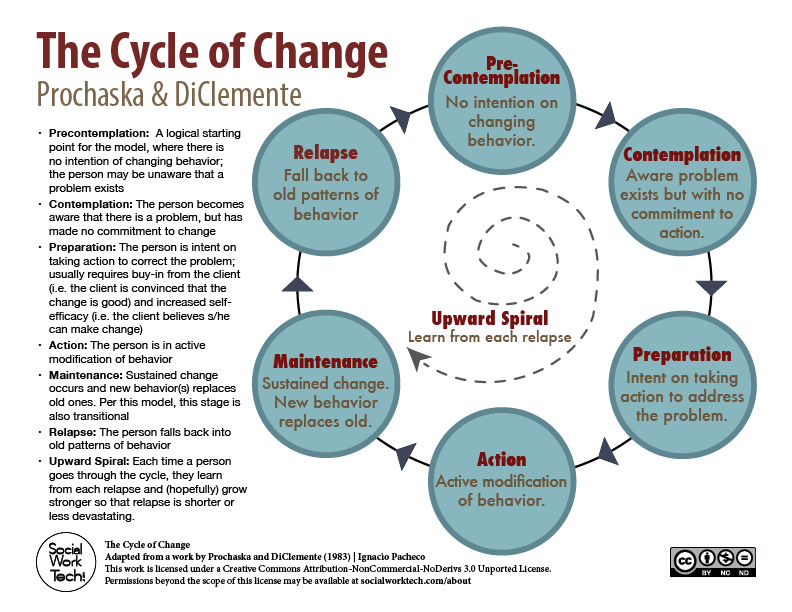All Posts in Category:Anxiety/Depression
Making Friends as an Adult is Different...and Can Be Really Challenging share
You’re not uncool. Making friends as an adult is just hard
When you were a kid, it seemed like you could walk up to just about anybody and be best friends the next minute. But somewhere along the long, winding road to adulthood, making new friends became an impossibly hard thing to do. Well according to psychologist and University of Maryland professor Marisa G.
NPR’s article & corresponding interview captures something that I have been teaching to people, as early as post-graduation from their education for their career. Going to school creates the social dynamics that allows for making friends to happen organically. Repeated exposure to the same people in a common experience allows for getting to know people better and honing in on people who might be a good match for you as a friend. It allows for time to build trust, establish things in common, and develop shared memories. When we are no longer in a structured environment like that, developing new friendships takes more of a willingness to be vulnerable and choosing to put yourself in situations repeatedly to get to know people.
Developing new friendships is extra difficult after a move. When you wind up living in the same area that you went to school, you will continue to lean on some of your school relationships while you naturally give yourself time to get to know new people through work or other community activities such as volunteering, your kid’s school, or perhaps a spiritual community. When you move, you will still have the emotional ties with your close friends who live far away but developing a network of people to call on for social activities like catching a movie, going out to dinner, or having over to watch the game…this takes time and putting yourself out there. I often compare it to feeling the same awkwardness that can happen when you are trying to date people, without having to navigate the physical component. It can feel like a very lonely time and, when people don’t realize that it’s a normal situation that will get better with time, sometimes they take the feeling personally and worry that there is something wrong with them.
If any of this feels like something you, or someone you know, is struggling with…give this link a listen. I suspect that perhaps, suddenly, you will feel a little more understood and a little less alone (and maybe a little anxious about learning that you need to try to put yourself out there, but it will be worth it!).
Everyone Has To Like Me share
(Note: The part of the conversation that I’m talking about begins around 4:30.) Words of wisdom can come from so many places. I was pleasantly surprised when I watched this clip of two famous men inadvertently having a truly deep and personal conversation about feelings of insecurity on public television. I admire John Mulaney’s willingness to be vulnerable, because he makes it clear that it is not easy for him. His willingness to be vulnerable left room for Stephen Colbert to share about the place that he’s come to in his life where he is comfortable with the knowledge that not everyone likes him, and how he finds connection with people who understand him to bolster his sense of self. I wish I could be a fly on the wall to see whatever conversation took place backstage after the taping because Colbert definitely had Mulaney’s attention.
It’s not just public figures that have to come to terms with the fact that not everyone will like them. We all do. It’s just not realistic to expect that we will be so universally likable to all sorts of different people, with their own beliefs, preferences, baggage, and issues. When we try to do this, we get stuck in loops of toxic perfectionism that can be painful and sometimes even incapacitating. It can be uncomfortable being around someone who doesn’t like us. But, so long as we do little self-checks along the way to make sure that we are conducting ourselves as honorably and considerately as we can…that’s all we can do. After that, whatever the source of the dislike is (and it may have way more to do with the other person’s baggage than anything we, ourselves have done), it’s out of our control so all we can do at that point is practice acceptance. It can also help to check in with people who accept us for who we are to remind ourselves that our thoughts and feelings are valid and important.
Podcast: Optimizing Brains by Dr. Kristen Allott, Naturopathic Physician share
I am a big fan of Dr. Allot’s work. I have been providing her information to my clients for years now, and it has played a significant role in how I work with clients who come to me with anxiety, depression, and ADHD-like symptoms. I just discovered that she now has a podcast and is releasing information to the public. I’m excited!!! The bottom line is that providing our bodies regularly with enough nutritious food, namely enough protein and complex carbohydrates can go a long way in helping to bring panic, worry, sadness, and focus/prioritization back into manageable proportions.
I still need to listen to more of them but some of my favorites are:
How What and When You Eat Affects Anxiety – Episode 9 – Optimizing Brains and Bodies
This is an excerpt from a longer seminar in which Dr. Allott explains the physical causes of anxiety , fatigue, agitation, insomnia and sugar cravings. It explains the way your body reacts to the different fuels, or foods, you consume throughout the day. Instead of addressing food in terms
The Importance of Eating Breakfast – Episode 4 – Optimizing Brains and Bodies
In the April Connectors Group we discussed how to deal with some of the challenges that come up when connecting with friends, family and colleagues.
Experiment: 3 Days of Protein – Episode 10 – Optimizing Brains and Bodies
Studies show that our ability to concentrate, have self control, assess a situation, and creatively problem solve for good decision making is determined in large part by the physical resources our brain . This is an excerpt from a longer seminar in which Dr. Allott explains how
Illustration of (Some) CBT Concepts share
 Overview
Overview
Cognitive Behavioral Therapy (CBT) is the strongest, research-backed therapeutic approach in the treatment of anxiety and, additionally, to be very effective for a whole host of other mental health issues. It is based on the framework that emotions, thoughts, and body sensations/physical behavior are at three points of a triangle and intervening on one of the points will result in changes the other two.
TEDx Talk: Feeling Good presented by David Burns, MD – In this YouTube video, David Burns, MD, a well known researcher, clinician, and educator introduces the power of CBT in his warm, humorous and down-to-earth way.
Concepts
“Automatic Thoughts”
Automatic thoughts are a core concept of CBT. They are our brain’s running interior dialogue or self-talk that narrates our life without us even really being aware of that it’s happening until we choose to pay attention to them. If your thoughts frequently contain “thought errors” that are biased to being negative ones, they are very likely to be increasing the level of anxiety or depression that you feel necessarily . These thoughts are habits that reflect the way we interpret things that we do, experience, or even how we view the world. The thing about habits is that, with some work, they can be shifted or changed. When you increase awareness of what your automatic thoughts are, you can start to challenge them and then, ultimately, reduce their effect on your perceptions and your mood. When working with children, negative automatic thoughts that affect them this can sometimes be referred to as a “brain bully.”
- An animated video that talks about automatic thoughts and gives an overview of some of the typical “thought errors” that people might have. Read More >
Thought Errors/Cognitive Distortions
“Focus on the Negative”
Focusing on the negative is known in CBT as a cognitive distortion or “thought error” that can increase the level of anxiety or depression that you feel. The human brain is drawn to negatives but it skews our perception of people and the world around us. With the easy access to negativity in the media, including the internet, it can be more and more challenging to pull our minds away and, instead, choose to focus on the wealth of positive things in our lives. However, the research shows that with practice we can get better at recognizing when we are focusing on only the negative aspects of something and then consciously remind ourselves of all of the positives in the situation instead.
- A playful animated video that illustrates this idea. Read More >
- TED talk that gives a more scientific explanation of how our brains seem to stay stuck on negative information, and how to get unstuck. Read More >
- Story time! At least that’s what our brain is doing when we are experiencing fear for something that might happen in the future. Check out this TED talk and learn more. Hmmm…why might this knowledge be important? Read More >
Healing Yoga share
 Update: 12/16/2018 I just learned that Healing Yoga is closing it’s doors. However, I have decided to leave this article up so that people know that there is such a thing as a yoga/therapy blend that can be very powerful treatment, especially for folks with PTSD. If you are reading this and know of another local resource that offers this type of treatment, please let me know. ~ Andrea
Update: 12/16/2018 I just learned that Healing Yoga is closing it’s doors. However, I have decided to leave this article up so that people know that there is such a thing as a yoga/therapy blend that can be very powerful treatment, especially for folks with PTSD. If you are reading this and know of another local resource that offers this type of treatment, please let me know. ~ Andrea
I’ve written a little about how yoga is an activity that has benefits for for everyone is beneficial for just about everyone. Healing Yoga (Douglassville, PA) takes it one step farther. Recommended to me by a colleague, the instructor, Dorian Abel is a licensed professional counselor who is skilled at incorporating her professional expertise into some of her yoga classes. However, even basic yoga classes should provide wonderful ways to develop skills that benefit a person’s mental well-being. As I write this segment (July ’16), in comparison to prices for yoga classes at other locations that I’ve looked at in the area, her prices are quite reasonable. The individual session fee is definitely more expensive but my suggestion would be, if you are considering that option but are concerned about the expense, it might be possible to do it once as a consultation and then work to incorporate what you learn into your yoga class experience, on your own.
Yoga share
 Yoga is good for the body AND the mind. In addition to the obvious health benefits of regular exercise, a good yoga instructor creates an environment that promotes:
Yoga is good for the body AND the mind. In addition to the obvious health benefits of regular exercise, a good yoga instructor creates an environment that promotes:
- A sense of serenity and acceptance for who you are in the moment.
- Guidance for how you can recognize when your “monkey mind” is swinging from thought to thought with the worries of the day and gently turn your attention back to the present moment and the feeling of your nourishing breath
- Feeling comfortable in your own skin.
- Increasing confidence as your strength and flexibility grows.
There is a TON of research that strongly supports using yoga to assist with the treatment of: anxiety (including Post Traumatic Stress Disorder); depression; ADHD; sleep problems; substance abuse, anger issues, and schizophrenia (when done in conjunction with medication). It’s an activity that can be modified for people of any age, from 2 to 102, and you can take with you anywhere you go! There are even some instructors that have training in both mental health therapy and yoga and can customize the work to really target anxiety and trauma specifically, teaching you how to be comfortable in your own body again.
Personally, my ability to use relaxation breathing as a skill in my daily life has never left me, even though I haven’t done a class for almost 10 years. One day, when my life gets a bit simpler, I fully intend to return to the benefits of a more regular, devoted yoga practice. In the meantime, I remind myself the words of wisdom of one of my former instructors, “Even one sun salutation is a yoga practice.”
Other Anxiety & Depression Links share

Individual Websites
Families for Depression Awareness
Skills That Are Helpful with Anxiety & Depression
- How to Use Mindfulness to Work With Difficult Emotions: A Six Step Process
- How to Mindfully Sit with Anxiety
Articles
Talking to Children About Terrorism and War (American Academy of Child & Adolescent Psychology)
Article: Not Hungry in the Morning - Dr. Kristen Allott, Naturopathic Physician share
 Nutrition is the cornerstone of good mental health. This is why it’s one of the first things I talk with my clients about when they start to work with me. Nobody is perfect, least of all me, but the more conscious we are about making sure to eat at least three meals a day, plus a few healthy snacks, the easier it will be for our mood to be calm and comfortable and out energy level to be active.
Nutrition is the cornerstone of good mental health. This is why it’s one of the first things I talk with my clients about when they start to work with me. Nobody is perfect, least of all me, but the more conscious we are about making sure to eat at least three meals a day, plus a few healthy snacks, the easier it will be for our mood to be calm and comfortable and out energy level to be active.
It’s not unusual, when I start to discuss this with my clients, for folks to tell me, “Well, I’m really not hungry in the morning.” Because breakfast so strongly sets the tone for our bodies for the rest of the day (because of chemical processes that need to be fueled in the morning, as well as other things), this is an issue that we need to tackle together.
In her article, Dr. Allott teaches us about why you actually aren’t feeling hunger, even though your body really does need more food. And, while she explains it in the context of breakfast, this is true for any time that our glucose level (“blood sugar”) goes low and kicks off a process in our liver that taps into our body’s emergency reserves.
PS – While you are on her site, you may want to explore. She has TONS of free resources available that really help to illustrate the connection between nutrition and mood.
Stages of Change share
Once upon a time there were two researchers, Prochaska & DiClemente. (If you can’t already tell, I’m in a bit of a silly mood at the moment.) They were smart people who did research and read other people’s research and put it all together back in 1983 to come up with their Stages of Change model. This model is used heavily in the treatment of addictions but can also be applied to things like the treatment of anxiety and depression…or almost anything really, where change is involved. What they so wisely realized, when it came to making a change in one’s life, was that in addition to understanding the human mind and what can help it to change, you also need to be aware of the person’s readiness to actually do the work to make the change that they are looking for. The stages are Pre-Contemplation (when you don’t even have the desire to make a change), Contemplation (when you recognize that there is a problem and you are starting to consider if you want to make a change), Preparation (when you are starting to gather the resources and information you might need to help you make this change), Action (actively working on making the change happen), and Maintenance (you’ve made the change and can finally start to not work so hard on it, but there may still be some things you need to do to keep this positive change in place).
The Stages of Change model can help us to be patient with ourselves. It can help us to recognize how really ready we (or someone we care about) might actually be to make a significant change in our life. And, it can help us to realize what steps we can take to get ourselves closer to being ready to make this change. There is a therapeutic approach, Motivational Interviewing, that is also heavily rooted in the treatment of addictions but that can be applied in all sorts of other places. Motivational Interviewing is a technique that helps therapists, parents, even friends, to be accepting of the stage of change that a person is in at this moment, and being able to work with them (rather than battle with them) to explore small steps that they might feel comfortable with doing that will get them closer to being ready for change. (I plan to make a post on that at some point but for now, I leave you with doing an internet search.)
Below is an illustration of these stages. I like this illustration in particular because it’s drawn with a spiral rather than in a linear way. This is because there are no rules about the actual order we need to go in as we head towards change. And, sometimes, we even go backwards to an “earlier” level.
Crime Victims’ Center of Chester County share
 The Crime Victims’ Center of Chester County, Inc. provides free and confidential services to victims and their family members/significant others who reside in or were victimized in Chester County, Pennsylvania. They make the cold and unwelcome world of the court system feel knowable and as effective as possible by practically, and sometimes literally, holding your hand every step of the way. Additionally, free counseling and even money towards expenses that have resulted from being a victim are also available.
The Crime Victims’ Center of Chester County, Inc. provides free and confidential services to victims and their family members/significant others who reside in or were victimized in Chester County, Pennsylvania. They make the cold and unwelcome world of the court system feel knowable and as effective as possible by practically, and sometimes literally, holding your hand every step of the way. Additionally, free counseling and even money towards expenses that have resulted from being a victim are also available.
Since I originally wrote this post, I have now had personal experience with this organization and I can’t say enough good things about them. If you are the victim of a crime, they should be the second place, that you call, after the police/FBI. Even if you are unsure or don’t want to formally report your the crime to the authorities, CVC is there for you, 24-hours/day.
CVC, also known as the Rape Crisis Council of Chester County, Inc., is the designated Sexual Assault Center for Chester County. CVC provides services to victims of all types of crime and violence including, but not limited to: rape, sexual assault, incest, sexual harassment, child abuse, elder abuse, homicide, assault, robbery, identity theft, drunk driving, stalking, and bullying.
Tip: If you don’t live in Chester County, your county will have a crime victims’ center too, but perhaps by a different name. A quick Google search should be able to help you locate the one in your area.








